"Our technology is in our mind"
Elhuyar-Zetiaz: The EAE (Institution of Electrical Engineers) has awarded the “Heaviside” prize to a work published in the field of adaptation process control. Why do you think it has been given to you?
Julián Florez: As soon as we get the news of the award, we wonder why that award? As we know, in the EAE
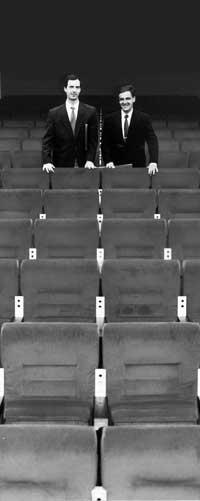
The contribution of our research work is based on the utility of control of adaptation processes. We always try to integrate theoretical work with practice and in this case we also wanted to. I think the EAE has taken into account this other aspect that surpasses the theory when considering ours as a winner. The article published in the journal EAE is to reward the practical uses of technology.
N-D: What is the thesis of the winning article?
J. F. Along with other works, in the Department of Control and Electronics of the CEIT and the School of Engineers of San Sebastian we have analyzed the controls of adaptation process. Said so and formulated mathematically, it seems to be a very abstract concept and yet we have analyzed the uses that are collected in it. Adaptation process controls are intelligent control systems over any physical process. This means that the system itself identifies the variables that it will find throughout the process and is able to give preset answers.
The winning article has been translated into a simple electronic system to use in practice what is easily understood in theory. The objective of the application must always be to achieve the saving and optimization of the process, and in this sense the development of process controls is an area with a promising future. For example, the application of conditioning process controls in the heating system can lead to significant energy savings. Following the same example, a rigid control system would light the heating at a specific time in November this year, which also did last year.
On the contrary, the integration of an intelligent process control capable of identifying and learning all the variables that the network has makes this year it not necessary to turn on the heating. This simple example illustrates well the most interesting part of the system that we have developed: it identifies and learns the incidents of the process and then is able to give an adequate response to it. It is only a simple example, but I think it reflects well the contribution of the new system.
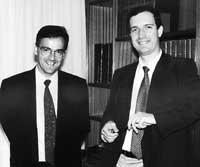
N-D: In which areas can an intelligent process control system be used?
J. F. Since we published our study in the EAE magazine, we have been asking for information about the system from many places. It has been shown to apply to all areas related to direct energy management in the electronics, chemical, nuclear, biological and general industries. As you can see, it is designed to be a multidisciplinary system.
Although its theoretical approach seems very complex, we have managed to integrate everything in a circuit, which is of vital importance from the business point of view. In fact, when defining the main lines of the study, we take into account the technological needs of companies and these lines are developed in collaboration with companies. Therefore, we must respond to these needs and for this it is essential to work quickly and effectively.
N-D: As for the use of technology, what is the interaction between companies and research centers?
J. F. First, mutual knowledge is fundamental to the proper functioning of the industrial and economic engine, in which researchers and entrepreneurs have a level of responsibility. Just as it is essential that companies have staff trained to identify the needs of the process, it is very important to conduct an exercise of inverse understanding. Research institutions should show a real interest in approaching companies and boosting collaboration.
In order to carry out technology transfer, the active behaviour of professionals is essential. Research is not a hobby, but it is believed to be so in some places. The organization EITE, which brings together the main research centers, has been in charge of bridging theory and practice. Thanks to this, a climate of collaboration is being fostered and, although not everything has been done well, I think it has contributed to creating a new culture.
N-D: Does high research indicate that the professional activity of companies can be of the same level?
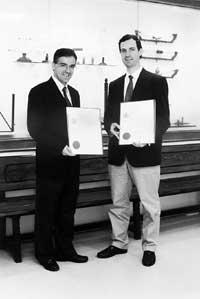
J. F. : I think we still have to learn to put aside many complexes, because many times we have a worrying tendency to despise us. It can be said that the level of technology we use today in Euskal Herria is good, without reddening the colors. Regarding companies, we can say the same thing and their demonstration can be found in the industrial dynamics itself. Although our internal market is small, on more than one occasion it has been confirmed that abroad we can walk without shame. We have to learn to exploit our resources well. Knowing what is done in the world, we can say that we are able to compete with anyone. Although not believed, our best technology is in our minds, in everything we can do with our means.
N-D: In the award obtained and in the work you are currently doing, what importance does teamwork have?
J. F. No group can not work. Increasingly, to adapt to the needs of the company it is necessary to work in multidisciplinary fields. This requires the best professionals to be in our environment. At CEIT we play with a great advantage: we know the best students of the school of engineers and this structure facilitates contact with research enthusiasts. Without that link, it would be impossible for us to carry out many of the projects we have right now. I believe that to ensure the development of technology we must create a pyramidal structure: although the head is important, the base of the pyramid must be solid.
N-D: Most Basque companies are small or medium. Consequently, the creation of R&D departments will always be difficult, but their need is evident. How can this problem be solved?
J. F. Whenever we talk about this problem, we are almost always led by official work structures. There are official aid structures and from there we have drunk many times. I don't think it's the only way. I believe that definition problems often arise because the productive process is not known correctly. They must learn to differentiate technological needs and development in the companies themselves. We must all learn to differentiate between essence and skin.
N-D: In Euskal Herria there are few electronics companies. At what level can you reach from your experience?
J. F. I think the adaptation to the market that has been given at other levels also has to take place here. Among us there is no market that we can define as consumer electronics, we do not chip, but we know how to make systems. Gurea is the manufacture of engineering electronics, that is, the use and application of technology. At this level we could be very well around the world if we definitely discard the complexes we have mentioned.
Without shame, we must insist that we are able to compete with anyone until all of us create and create. Our strength is us and with that belief we can get anywhere, because we have technological means. To be in the group above will be necessary a great change of approach: all of us who participate in the market dynamics must fully assume that Euskal Herria does not only exploit its internal market. Because our market is all over the world and right now we are competing with the biggest powers in the world.
Biographical data
- Julián Florez Esnal was born 37 years ago in Zumaia. Today he lives at ease, militancy in his peopleany excuse to make fire seems appropriate.
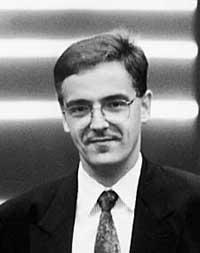
- In 1980 he completed his engineering studies at the Escuela Superior de Ingenieros de San Sebastián, where he studied electricity.
- Since his PhD in Manchester in 1985, he devoted most of the day to research and teaching between CEIT and the School of San Sebastian. He is currently Head of the CEIT Control and Electronics Department and Advisor to the Electronics Cluster.
- The watch likes to play sports in the few hours it has stolen; we are witnesses.
- Individually or collaboratively, he has published numerous articles in journals of international prestige. The book “Automatic Regulation” will be published soon along with Arantxa Tapia by Elhuyar.
The CEIT Research Center has been a fruitful news source in recent days. And when we came with the excuse of announcing the award received by Julián Florez and Mario García, we received the echoes of the tribute to José Javier Urkola, former friend of Elhuyar who works at CEIT. We didn't have to ask about the reason for the homage: His companions told us that Jabier is well deserved, we wanted to bring one of those opinions to these lines. Encourage our sincere congratulations.
Jose Mari Rodriguez Ibabe, CEIT researcher.
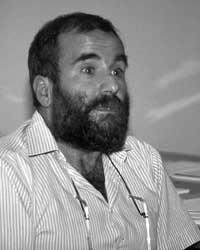
This year the College of Industrial Engineers of Álava, Gipuzkoa and Navarra has dedicated the tribute to the tolosarra Jose Jabier Urkola, thanking him for the valuable work carried out in the field of Basque. For me this news has been very satisfactory. I have been working with Javier for many years and it is undeniable that he has influenced me a lot and continues to do it today.
On the one hand, Javier shows all the members of the team the methodology to follow in an investigation through his work in the Department of Materials of the CEIT, always looking for new results and fleeing from habitual interpretations. This behavior has led to numerous articles in international scientific journals and is currently a great steel master at European level.
On the other hand, in recent years Javier has given a great boost to the use of technical Basque in the field of materials science, stirring the old powders of the professional environment that touched him and his generation. The result was the technical and scientific work carried out in the working group, some of them published by Elhuyar. In addition, nine doctoral theses have been submitted or presented in Basque within five years. Therefore, Javier was well deserved and won his tribute. Zorionak Jabier!
Buletina
Bidali zure helbide elektronikoa eta jaso asteroko buletina zure sarrera-ontzian











